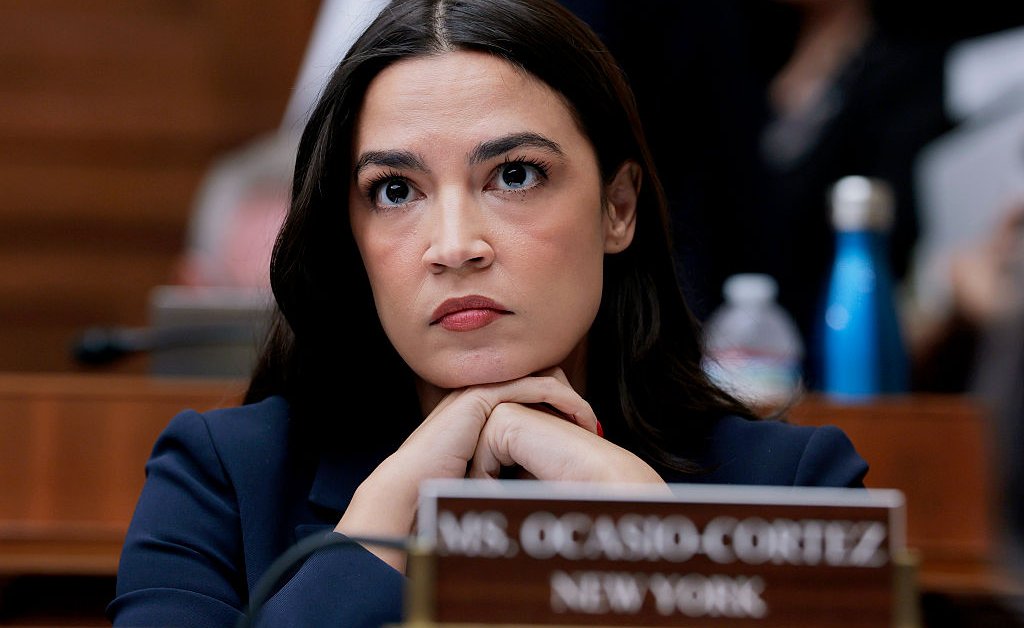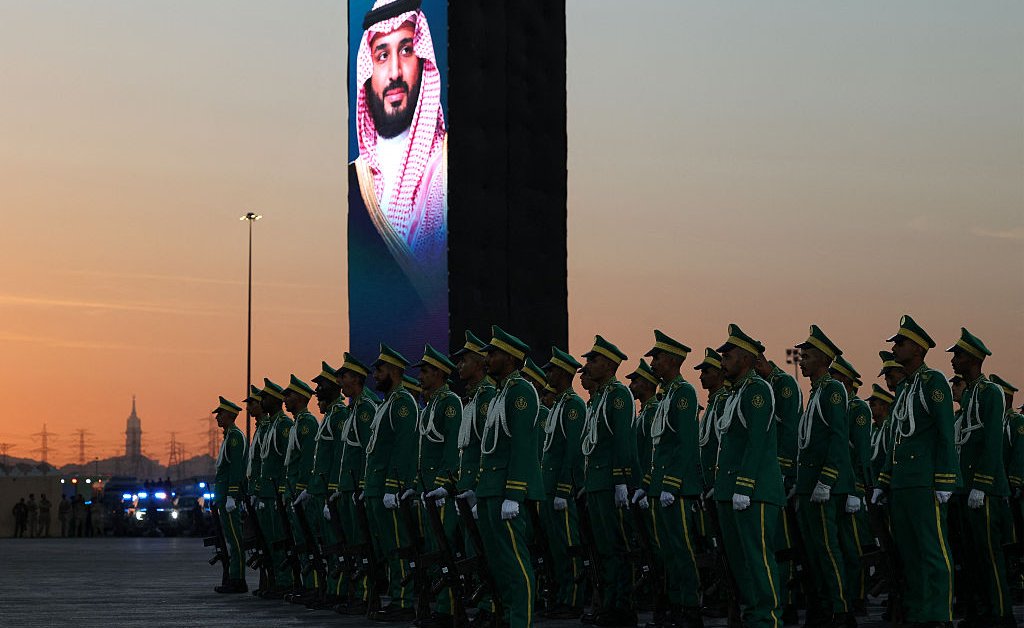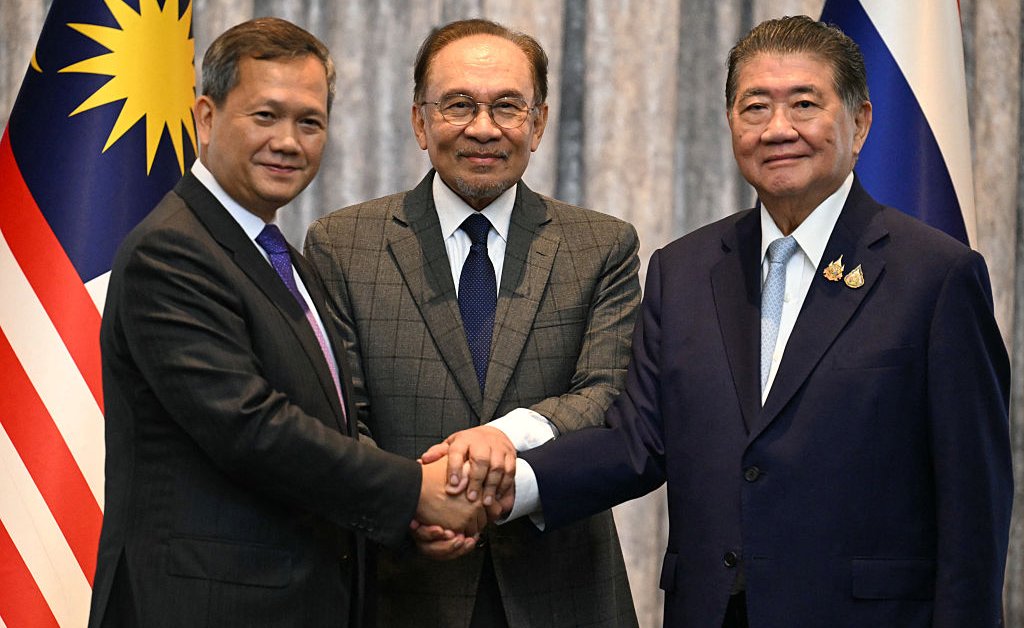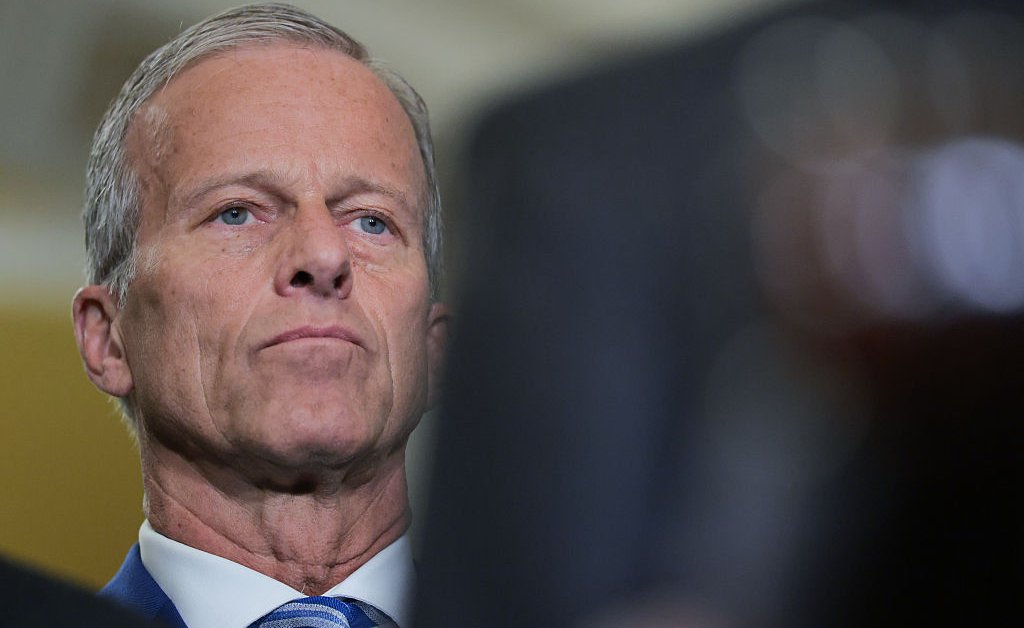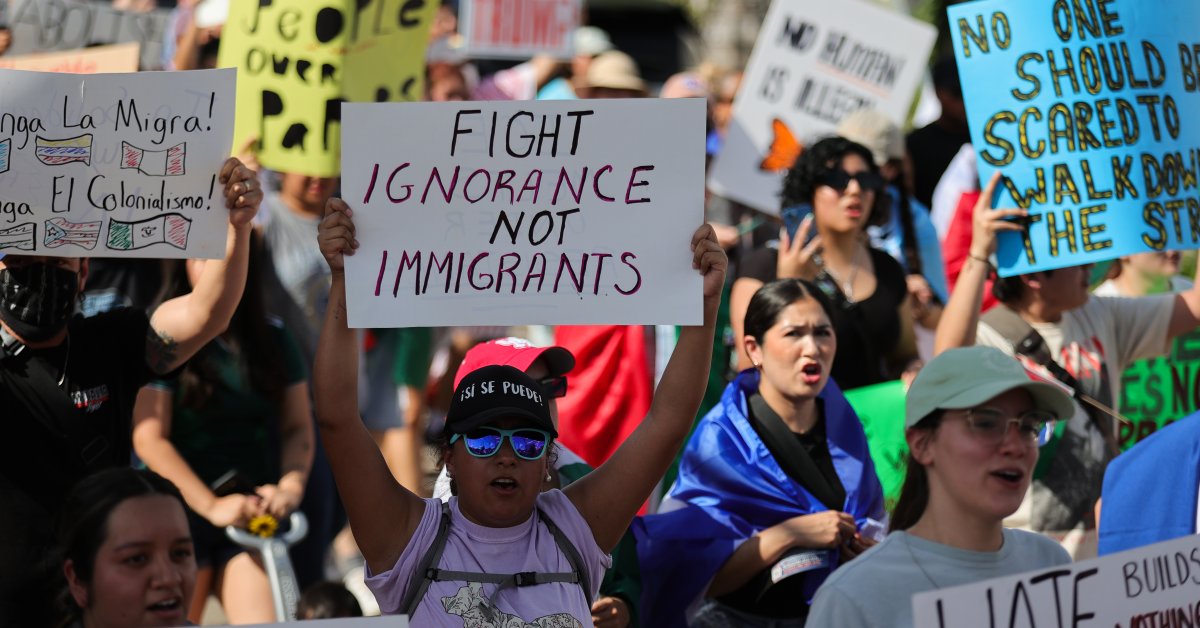This article is part of The D.C. Brief, TIME’s politics newsletter. Sign up here to get stories like this sent to your inbox.
The world was on an edge on Monday, as missiles aimed at American forces in Qatar marked the start of Iran’s payback for a U.S. strike on its nuclear sites. As Washington considered the far-reaching implications for foreign policy, the politics of the moment were equally up in the air as Democrats can’t decide whether to respond with a roar or a whimper to Donald Trump’s once-in-a-generation sneak attack.
The strikes have triggered a whole host of reactions among the opposition party, none apparently unified or coordinated. The attack was absolutely the right call in the eyes of Sen. John Fetterman of Pennsylvania, but an immediately impeachable offense to the ear of Rep. Alexandria Ocasio Cortez of New York. Probably the right call, in the estimation of Senate Democratic Leader Chuck Schumer, but it would have been better with Congressional sign-off. The Let’s Wait And See Caucus is being led by Rep. Jim Himes of Connecticut even as he also questions if the attack was even constitutional.
It all lays bare how, a decade on, Democrats still are at a complete loss for how to tackle the most powerful Republican in the nation.
The fact that Israel is involved complicates their calculus tenfold. Jewish voters, although a tiny sliver of the electorate, are among the most loyal base for the Democratic Party. (Last year, 78% of Jewish voters cast their ballots for Kamala Harris.) Support for Israel—though not necessarily its government led by Prime Minister Benjamin Netanyahu—has long been a cornerstone of the party’s political worldview. But an outpouring of sympathy for the Palestinians, under attack from Israel after Hamas’ brazen attack in 2023, has shaken some of that footing, especially with younger Democrats and the progressive Left. And Trump’s targeting of college campuses for being havens of antisemitism has caused a backlash from liberals who might despise that strain of hatred, but find Trump equally as loathsome.
That confluence of tricky politics has left a lot of D.C.’s political class in a bind. After Trump announced on social media Saturday evening that U.S. stealth jets had flown to Iran and dropped bombs on nuclear sites, escalating an already tense situation, Democrats found themselves in a circular series of conversations. Text chains buzzed into the early-morning hours as arm-chair experts on Tehran speculated what the political detritus would be stateside. They continued after the Sunday-show circuit was even more of a big-tent circus than usual. And here’s the rub: amid all the complaints about how Democrats should be more coordinated, no one is really speaking with confidence about how Democratic leaders should be treading at this moment.
Read more: Inside the Democrats’ Reboot
Polling explains this, at least in part. The Reagan Institute, the D.C. think tank arm of the Ronald Reagan Presidential Foundation and Institute, put the question of attacking Iran to voters in a poll in late May and early June—before the war moved from theoretical to live—and found an expected partisan divide. The data it released on Sunday suggests almost half of all Americans support airstrikes if diplomacy failed, with 45% favoring kinetic activity if diplomacy fell short and 37% opposing it. But the boosters are largely Republican: 60% of them support action while just 32% of Democrats agree. A majority—51%—of Democrats opposed the strikes while just 27% of Republicans agree there.
Which is why Democrats are so splintered here. They simply don’t know where the base is going to land. The threat of primaries is real for incumbents, activists are spoiling for a fight, and donors are still pissy after last year’s disappointing showing that put Trump back in power. The polling suggests opposing Trump’s strikes would be good politics but history suggests that such dynamic moments unify the public behind a President, even one they oppose. Less clear? How long that unity sticks; Barack Obama’s polling bump after taking out Osama bin Laden lasted about six weeks.
This explains why so many in the likely 2028 presidential field are keeping quiet, at least for now.
There’s just as much ambiguity among those eyeing a chase of the GOP nomination. Inside Trump’s national-security circle, the ambiguity was deafening. Vice President J.D. Vance and Secretary of State-slash-National Security Adviser Marco Rubio both emphasized that the action on Saturday was a one-time-only event. Defense Secretary Pete Hegseth said the “mission was not and has not been about regime change.”
But Trump, ever one to keep his cohort in chaos, said maybe “regime change” was in the cards despite a very problematic—and politically unpopular—history.
So as the region watches as Iran digs out and pushes ahead with its response, folks in Washington are similarly keeping an eye on Democrats to chart their reaction. You can bet a bunch of pollsters are busier than they expected to be this Monday.
Make sense of what matters in Washington. Sign up for the D.C. Brief newsletter.

